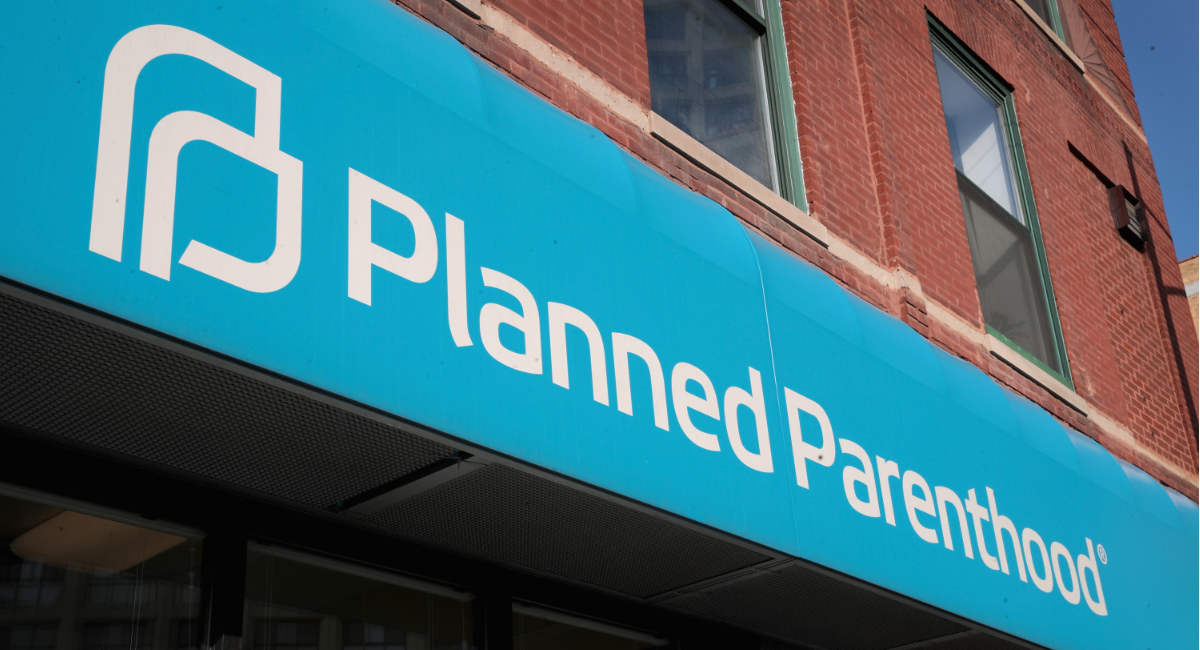In Leana Wen’s new book, “Lifelines: A Doctor’s Journey in the Fight for Public Health,” the former president of Planned Parenthood wrote openly about her disillusionment with the abortion giant. Wen said she had been open about her desire to make the abortion business more centered on health care, only to be forced out in less than a year — specifically because she wasn’t promoting abortion enough. Now, other former Planned Parenthood staffers are echoing similar claims.
Wen, who was the first female physician to ever head Planned Parenthood, wrote in “Lifelines” that she believed the oft-repeated claim that many people relied on Planned Parenthood for primary care. Therefore, she wanted to focus on expanding care to as many people as possible. “Why shouldn’t the organization expand its services to provide primary care and mental health care, too?” she wrote. “Planned Parenthood was one of few health-care providers with a presence in all fifty states — why shouldn’t it aim to extend its care to millions more women and families in rural and urban underserved areas?”
Though the board had agreed with Wen about health care being her priority when she was first hired, she was soon criticized for not mentioning abortion in every interview and for making health care more of a priority than abortion. And she wasn’t alone. Other former staffers spoke to the National Catholic Register about their similar experiences with Planned Parenthood’s pro-abortion militancy.
READ: SHOCK: Just 3% of women of reproductive age in the U.S. go to Planned Parenthood
Caroline Strzesynski, a nurse practitioner, worked for 11 years at Planned Parenthood in Ohio. Previously, her affiliate hadn’t been committing abortions at all, but that changed after merging with Planned Parenthood of Greater Ohio. “The affiliate I was with actually provided prenatal services,” she said. “We had an agreement with a local midwife group who would come in and they would go to the health department, and then another inner-city clinic, too, where they would provide pregnancy services.”
But eventually, they were not only expected to commit abortions, but had abortion quotas to meet because it was “how we make our money.” The prenatal program, one Strzesynski used herself, was gone. Though Strzesynski was, at the time, pro-abortion, she didn’t agree with Planned Parenthood’s extremism. “I would not have worked for a place that their intentions were to increase abortion numbers — that was the total opposite of what my thinking was. Even as a pro-choice individual, that is unacceptable,” she said, adding that the staff had originally been “mission-driven: We really were about preventative health. It’s when we started merging with the other affiliates that then the abortion piece started creeping in more.”
Myra Neyer, meanwhile, worked as a surgical assistant at a Baltimore Planned Parenthood facility. Originally, Neyer said she realized abortion would be part of the facility’s services, but she also thought they would be providing legitimate health care — cancer screenings, preventative medicine, and more. “I didn’t think it was such a big part of it until I started working there and realized that it was all abortion,” she said, describing “a quota we had to meet every day. We scheduled 50 abortions a day, and it was all about abortion, and it didn’t matter what that woman wanted in that counseling room — my job was to change her mind.”
For her, the last straw was seeing a woman pregnant with quadruplets forced into abortion by her boyfriend. “Watching four babies lose their lives to abortion,” she said, “I was just like, ‘What am I doing?’”
Annette Lancaster was a health-center manager at Planned Parenthood in Chapel Hill for one year, and said she had aspirations similar to Wen’s. “I started working at Planned Parenthood as a health-center manager under the assumption and auspices that I would be helping women. I knew that they performed abortions, but at that point in my life, I had never really been directly impacted by it, so I was neither pro-choice nor pro-life,” she said. “After working there just a few weeks, I started to realize that it was not about health care for women. Their major bottom line was all about money received from abortions.”
READ: As Planned Parenthood’s prenatal care plummeted over the years, its abortions skyrocketed
Though Lancaster said she was only meant to be performing administrative duties, she found herself “actually holding the ultrasound for day-two procedures. I am not certified. I do not have any type of medical training or medical certification.” She was also instructed to piece back together the preborn babies’ body parts to determine whether or not everything had been removed. “So basically, I’m signing off saying all these pieces are here; mom’s good to go,” she said. “What happens if she comes back, and there was something left inside of her womb? I’m not trained. I wasn’t trained to be doing that.”
Eventually, Lancaster was fired because her abortion numbers were falling. “They were going down because I actually started listening to women and talking to them. Women who came in who were uncertain about their decision, I would either cancel their appointment or reschedule,” she said. “Our numbers were dropping, and so I began to ask the question: ‘Are we stat-driven? Do we have a quota?’”
These workers, like Leana Wen, learned the hard way that Planned Parenthood is not interested in health care, but abortion above all else.
“Like” Live Action News on Facebook for more pro-life news and commentary!







